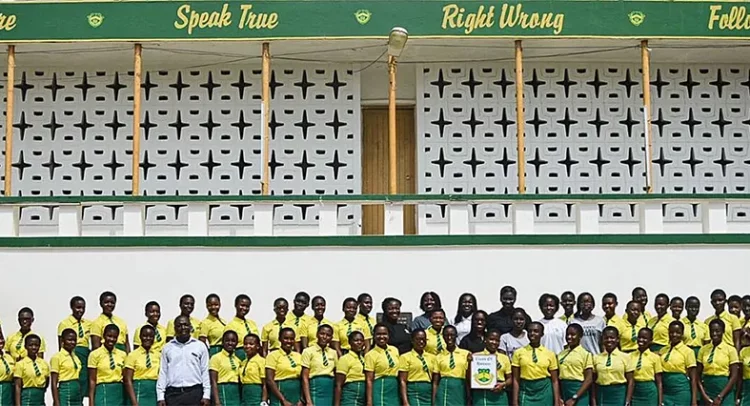Schools being places of learning are ran on rules and regulations, all intended to mould our future leaders.
In recent times, discipline has taken a nosedive in both schools and society at large, especially among the youth, the trend sometimes attracting public discourses.
Some senior high schools, especially the mission ones, must be congratulated for maintaining high moral standards among students.
Parents of first year students in schools like Wesley Girls’ Senior High School (Wey Gey Hey) have been told about the school rules, among them the kind of mobile phones allowed, keeping of medicines and exeats among others.
Wey Gey Hey is in the news again, however, over the aspects of the school’s regulations which it would appear, prevent Muslim students from practicing their faith. It is a subject whose solution has eluded both the Ghana Education Service and Wey Gey Hey over the years.
One of the rules, as told by parents who turned up during the engagement with the authorities recently, is that students are not allowed to fast but are allowed to pray by the side of their beds. Ambiguous as the foregone sounds, it appears not to specify which prayers, especially since it appears Muslim students are not allowed to pray in the school.
The authorities should come out boldly and explain to Ghanaians whether or not Muslim students are allowed to say their five daily prayers.
Regarding fasting, we understand that the authorities are apprehensive about the health implications of the ritual on students and learning, hence their decision to outlaw it. Being a faith issue, it would sound like the school authorities are breaching the freedom of religion provision in the constitution by stopping students from fasting.
Muslim parents who departed the school grounds at the end of their meeting with the school authorities arrived home wondering whether their wards would be able to adhere to the canons of their religion, especially the saying of the five daily prayers and fasting during the Ramadan month, which is not far away.
The school under review is the only one which makes the headlines when issues of whether or not Muslim students should be allowed to practice their faith. The reason could be because of the strict application of the rules of the school.
We do not seek to take umbrage with the school’s management over its application of disciplinary measures.
We however think that a way should be found to allow members of other faiths in the school to practice the tenets of their religions, because that is in consonance with the constitution.
The school authorities are unable to restrict admission to only Methodist students because such a discrimination would be a breach of the constitution and therefore actionable. That is why the school cannot admit only members of the Methodist denomination of the Christian faith.
The Attorney General, Dr. Dominic Ayine, should appreciate the combustibility of the subject under review when handled haughtily.
One of the stories in this edition is about a certain Sheikh Yusuf Umar Jallo venting his disappointment in the Attorney General for saying that the rules of the school must be upheld because it is a mission school.
When matters reach such a crescendo, cool heads and calm remarks are the best to employ. Aggressive reactions would not help us arrive at amicable solutions to this subject which now stands as a conundrum.


